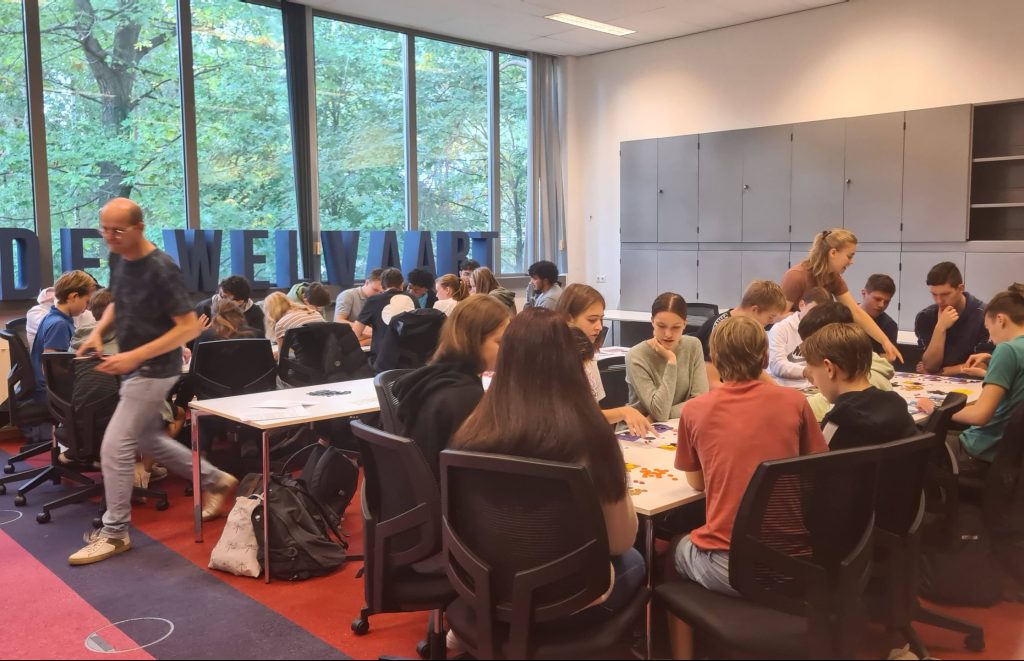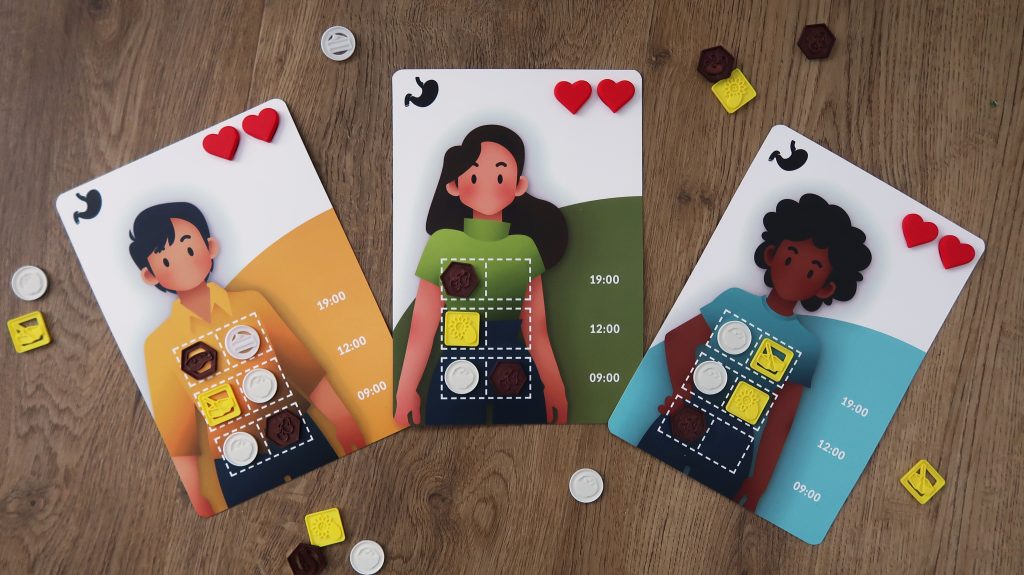Story
The hunger problem in the world is significant. According to the United Nations (UN 2021), a staggering 828 million people go to bed hungry everyday. Every ten seconds, a child dies somewhere in the world due to hunger and malnutrition (source: Zero Hunger Lab website).
We understand that this issue is complex and abstract, often making it difficult for people to form a clear idea of the causes and effects of world hunger. Our goal was to create a serious game that intuitively provides players with insight into this complexity, making the global food issue tangible and for players and to develop skills as collaboration, decision-making, numeracy, and citizenship.
Process
The development and validation process took place in 10 months.

Development (February – July)
February – April 2023: Intake meeting to discuss the game’s focus with experts from the Zero Hunger Lab.
April – May 2023: We organized a game design session with experts on world hunger using an existing game for inspiration, followed by a workshop to identify the first game dynamic, conditions, and guidelines. Outcome: Conditions and guidelines for the serious game.
May – June 2023: A short literature study on world hunger and the development of multiple prototypes for internal testing at BUAS was conducted. This resulted in a selection of the best prototype for further development—outcome: playable prototype and first design of game cards, coins etc.
June – July 2023: Extensive testing of the prototype took place at the Y4PT Hackathon in Barcelona. This gave us experience in playing and facilitating the game and the opportunity to collect feedback from a worldwide audience. The outcome was a Refined prototype and after discussion to reflect on learning goals.
July 2023: Presentation of the prototype to the zero hunger lab experts as a last round to collect feedback before validation with stakeholder groups started. After these playtests, the designs for the 3D coins and play cards were finalized, and the production process for the validation sessions started.


Validation (September – November 2023):
September – October 2023: Validation took place with three stakeholder groups: the first group comprised 33 primary school children. The second group comprised 66 high school children, and the last group comprised 16 experts on education, communication, and world hunger. Together with the University of Tilburg, we organized three game sessions to validate the final prototype and measure the insights gained by the players and their level of understanding of the world’s hunger problem. We made some final edits to the game based on these validation sessions. Outcome: final version of the game.
November 2023: focussed on bringing the game into production for the Zero Hunger Lab, writing the manual and developing a train the trainers. Starting from 2024, this game will be played with primary school during their “thema weken” related to this topic and the geography courses of several high schools.
Results
After many playtests, the final board game is able to simulate the following dynamics in the game :
- The impact of malnutrition on health and productivity.
- The consequences of an imbalanced diet on health.
- The relationship between purchasing power and food distribution.
- The connections between population growth and prosperity.
- The influence of the type of diet (vegan) on the ability to produce sufficient food.
- The challenges in providing adequate food aid in impoverished countries and the need for local economic development.
- The impact of hunger on satisfaction in affluent countries.
These learning goals were also reflected upon in the after-discussion and resulted in deeper understanding of the topic. It proved possible to play the game with both adults and children with just minor alterations.







